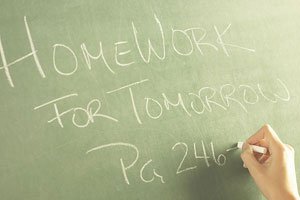District staff are now required to take state training on
special education requirements as per a state mandate that came
down last month.
District staff are now required to take state training on special education requirements as per a state mandate that came down last month.
The state, along with the federal government, sided with Gilroyan Jessica Perez, a former special education student who attended Ann Sobrato High School on an interdistrict transfer until she graduated in July.
The state found that Morgan Hill Unified School District discriminated against Perez based on her disability when school officials didn’t allow her to participate in the June graduation. Perez was five credits short of the total needed to participate, but Perez alleged that if the district had properly administered her special educational program she would have earned those credits. Perez has a learning disability that makes retention difficult, according to her mother Jenny O’Callaghan.
Perez earned the math credits in summer school and graduated in a small ceremony in July.
The state, and the Federal Office of Civil Rights, agreed with Perez’s assessment, saying the district failed “to allow an individual with exceptional needs to participate in any graduation ceremony in which a pupil without disabilities is eligible to participate.”
Perez alleged six instances of discrimination and the state upheld four of them, according to a report the Times obtained from O’Callaghan. She was equal parts relieved and disappointed last week.
“I’m just still very devastated about the whole thing, and why it had to take me going to the state to get anything resolved … I just wish she had experienced graduation. That’s one thing that they did take from us.”
O’Callaghan noted that the state did direct the district to allow Perez to participate in the graduation ceremony, but the district chose not to.
The Perez corrective actions are just two of 30 corrective actions required of the district following the complaints to the state or to the Federal Office of Civil Rights. The district spent more than $162,000 on special education-related legal costs last year, according to district fiscal services figures. That’s more than half of the total amount spent on legal contracts.
Of the 30 corrective actions, the district has completed 18.
Jay Totter, Assistant Superintendent of Human Resources and acting special education director, declined to comment for this article, since it is about a specific case.
He did, however, present an hour-and-a-half long presentation to the Board of Education during the body’s Aug. 25 meeting in which he detailed strides the district has made in the department since January. Totter said not enough attention is brought to the good things that have happened in the department over the past year.
“It’s a hard road we’ve had over the past few years,” Totter said. Last year debuted the Special Education Advisory Committee, a group of district staff and parents of special education students aimed at making holistic, systemic changes and improving policy. The district also started a newsletter, “Bridges,” to help keep parents informed on the department. As of March, the district had 352 overdue individualized education programs, which guides the education of special education students. Now, there are just eight remaining, which Totter cheered as a great accomplishment.
“There’s a common feeling that the district drives parents to legal action,” Totter said during the meeting. “We’d like to dispel that belief.”
In upholding that goal, the district is working on a manual to help guide parents through the program.
“Management, special education classified (workers), teachers, we’re all together. I think that’s what’s making the positive difference.”
In the Perez case, the state did not specify how many hours of training were required, and district officials were not forthcoming with that information. Totter also declined to say how many hours of training district staff will have gone through once all 30 mandated corrective actions are completed. Ana Marsh, administrator of the state education department’s Focused Monitoring and Technical Assistance Unit, likewise declined to comment on how many hours of training the district has been forced to go through.
More than 1,100 of the district’s 9,100 students have a disability, Totter said during the meeting. These range from learning disabilities like autism, emotional disturbance or mental retardation, according to the district’s Web site.
The district has until Nov. 30 to provide training for everyone from the Assistant Superintendent to resource specialist teachers regarding the state’s education code and writing legally compliant transition plans with measurable goals.








